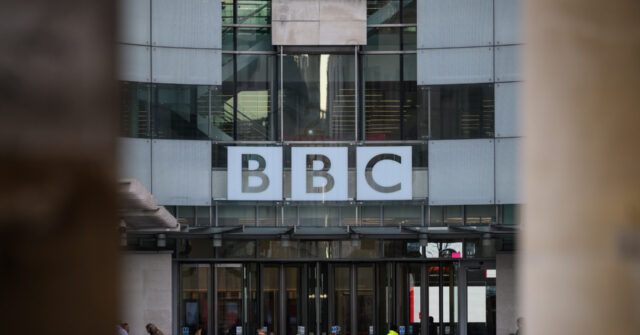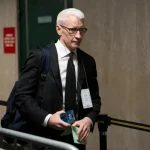

The BBC has come under fire after reports emerged alleging that a “well-known” presenter remained on air despite being accused of paying a teenager over £35,000 for sexually explicit pictures, leading some to question if the BBC bosses attempted to cover up another child sex scandal at the broadcaster.
A report from The Sun, Britain’s most circulated newspaper, has claimed that a 17-year-old was propositioned by a prominent BBC presenter — whose name is so far being withheld from the public — to send sexually charged photographs in exchange for money that was later used to fund a crack cocaine drug addiction, prompting the family to file a complaint with the broadcaster.
The alleged victim, who is now 20 years of age, transformed from a “happy-go-lucky youngster to a ghost-like crack addict” over the past three years, according to the mother.
Referring to the BBC star, the mother said: “When I see him on telly, I feel sick. I blame this BBC man for destroying my child’s life. Taking my child’s innocence and handing over the money for crack cocaine that could kill my child.”
“There were huge sums, hundreds, or thousands of pounds at a time. One time he had sent £5,000 in one lump. The money had been in exchange for sexually explicit photographs of my child,” she added.
The unnamed presenter could face charges of sexual exploitation under the Sexual Offences Act 2003 as well as violations of the Protection of Children Act 1978, which made it an offence to ask someone under the age of 18 to send a sexually explicit image of themselves.
Following the publication of the story, the BBC said that the male presenter would not appear on air in the coming days. However, questions are being raised as to why the presenter was not immediately suspended when the family initially informed the broadcaster of the allegations in May. It has also been reported by the Mirror that the presenter in question partied with BBC executive weeks after the allegations were made.
The BBC’s own culture editor Katie Razzall said that the fact that the presenter remained on air after the claims emerged “leads to questions about what steps the Corporation took after the complaint.”
Former Culture Secretary Nadine Dories said: “No place to hide for broadcasters who attempt to cover up this sort of behaviour. Lives are ruined, that’s what matters not damage limitation and brand protection. The public pay for the BBC, they have a right to know who this is, what happened and action taken.”
BBC Producer Spared Jail After Being Caught with Child Sex Abuse Imageshttps://t.co/QRZDkEdGvx
— Breitbart London (@BreitbartLondon) January 16, 2022
The prosecutor who led the Rochdale child rape grooming gang case, Nazir Afzal said per The Times that he was “surprised that this person was not suspended once they became aware of the gravity of the allegation”.
“The police should have been engaged as soon as they worked out whether the complaint was genuine. Where are we now — the middle of July? Six, seven weeks on. They should have advised the police that this is a matter that they should be investigating, and that should have been done weeks ago. There’s no justification for the police not having become involved as early as possible.”
The BBC has previously come under criticism for allegedly covering up the sexual abuse of children. In 2012, an independent review by Dame Janet Smith commissioned by the BBC found that a “culture of fear” enabled longtime television presenter Jimmy Savile to sexually abuse dozens of people, mostly children, while in the employ of the broadcaster between 1964 and 2007.
The report found that over 700 people from the BBC had heard rumours about Savile abusing children, yet no action was taken, and the presenter died without ever facing justice in 2011. Police later confirmed some 450 sexual abuse victims of the former BBC star, 80 per cent of whom were children or young people, mostly girls.
Responding to the latest allegations, a BBC spokesman said: “We treat any allegations very seriously and we have processes in place to proactively deal with them. As part of that, if we receive information that requires further investigation or examination we will take steps to do this.
“That includes actively attempting to speak to those who have contacted us in order to seek further detail and understanding of the situation. If we get no reply to our attempts or receive no further contact that can limit our ability to progress things but it does not mean our inquiries stop.
“If, at any point, new information comes to light or is provided — including via newspapers — this will be acted upon appropriately, in line with internal processes.”
Hammer-Wielding Man Smashes BBC Headquarters Statue by Known Sex Abuser Artist https://t.co/GlTryW3djh
— Breitbart London (@BreitbartLondon) January 12, 2022




